John Williams & Dave King
When I first got wind that a couple of acetates had turned up that dated from the original British psychedelic era I was, like most of a similar mind would be, I suppose, already full of expectation. And so when the first opportunity arose to listen in to those tracks I did so with wide-eyed, not to mention open-eared anticipation.
With the artist credit given over simply to John Williams, you’ll find that ‘Train’ really zips along at a fair pace, its solid groove and simple, yet so effective breakdown passages built around a relentless driving bass figure, and the kind of propulsive blueswailin’ guitar riff which the Yardbirds would’ve made good use of. The guitarist here was Dave King, who also wrote and played guitar on some songs that were recently found on a 1968 acetate credited to the group Spell, and which are also just about to be issued as an EP on Chris McGranaghan’s Those Old Records label. As some keen scholars of the 60s freakbeat era may be aware, John Williams had a band called The Authentics that Yardbirds and Led Zeppelin guitar icon Jimmy Page was involved in. If you’ve heard Volume 5 – the final instalment – of the great Chocolate Soup For Diabetics series then no doubt you will know the Authentics track ‘Climbing Through’, a wild slice of British R&B that was rescued from acetate obscurity.
Back to ‘Train’, however, wherein we hear a series of descriptive, scene-painting lyrics that tell of the immediate surroundings of the traveller, and continue with some musings on the probable thoughts and longings of those whom the writer is observing on this “8.39 train … never on time train”, which, we’re told, constitutes a “long and boring ride” through the endless, nameless places the train passes through. The flipside may or may not have anything at all to do with the group responsible for taping ‘Train’, however, ‘Two Children Speak Quietly Of Love’ stands as a worthy item of note also. By contrast, it’s a rather jaunty, yet slightly melancholy sounding vignette that speaks of life stuff like religious salvation, political awareness and the pent-up emotions of the young, all done in an endearing pop-sike style. Also, it’s quite easily the equal (or actually better in some cases) than some of the lesser-known material that some of us will have encountered on such as the Rubble, Circus Days, the afore-mentioned Choc Soup … and Incredible Sound Show Stories compilation sets.
He is not the classical guitar innovator of the same name, nor the successful film director, but this here John Williams will probably be more famous for being the one that put together the rare 1968 Maureeny Wishfull album, a shimmering, and enchanting slab of strange folk excellence that features significant contributions from Jimmy Page, Big Jim Sullivan and John Paul Jones. Williams was also responsible for a wonderful, more folk-blues styled, self-titled album which appeared on the Columbia label in 1967. Something, however, that will forever tie him to the then burgeoning psychedelic pop scene (albeit not in any commercially successful way) is the truly excellent single composition ‘Flowers In Your Hair’. Although not a hit anywhere that I know of – or given any kind of due at the time of its release – this ’67 gem was nonetheless rediscovered some decades later when it was selected for inclusion on the first issue of an outstanding Swedish compilation album; the now cherished Fading Yellow – a series that, still, gathers together intriguing and haunting mid-to-late 60s and early-to-mid 70s recordings, most of which are thoroughly inspirational pop rock and psychedelic-tinged wonders, and issues them to fans of that genre in a limited pressing on vinyl and on CD.
The following interview with John Williams was conducted by Lenny Helsing via email correspondence during February 2015.
Hi John, can you tell us briefly where you grew up and how come you came to be involved in the music scene of the mid-to-late 60s?
I grew up in the Goldington area of Bedford which has quite a musical history as it was where the the BBC Light Orchestra was relocated during the war. Glen Miller had lived just around the corner from where I was born. The Glen Miller Orchestra played locally in The Corn Exchange and the famous Cardington Hangers. Dave King lived just a few streets away and as teenagers we knew each other, playing in various local groups; rehearsing and performing in the same venues.
Bedford was close enough to London for acts like Joe Brown, Lord Sutch, Cliff Bennett, Tony Rivers and Neil Christian to play regularly at the Corn Exchange and the Con Club. It was also on the major Granada Circuit so we got all the National Tours. As a teenager, I would skip school for an afternoon to see the bands arrive in the tour bus. I remember carrying Johnny Burnette’s guitar from the bus to the dressing room before I even realised who he was or that he had such a history with Memphis, Elvis and the Rock n Roll Trio.
What were the circumstances that led up to these recordings that Chris McGranaghan’s Those Old Records label is about to release?
I was 18 and by that time we were playing at American bases and supporting London bands such as Neil Christian & the Crusaders. That is when I first linked up with Jimmy Page who introduced us to the London scene. For two years, as The Authentics, we played regularly at the Crawdaddy and Rikki-Tik clubs, held a residency at the Marquee supporting the Yardbirds on Friday nights and did a short tour backing Sonny Boy Williamson.
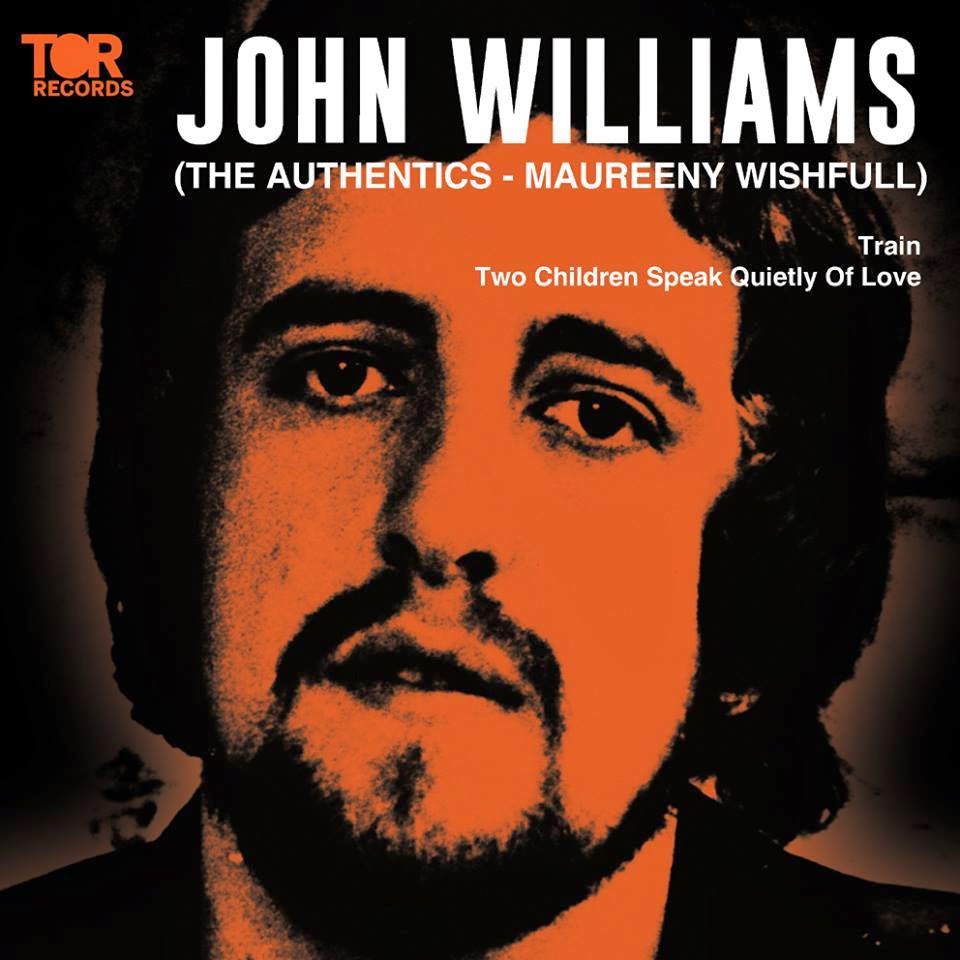
I had written a lot of songs by then and had recorded some with The Authentics, Julie Driscoll and Paul Samwell Smith and this seemed to interest Jimmy who contracted me to write for his publishing company and later for Immediate Records. This led to recording the “Maureeny Wishful” tracks and a number of other recordings with Jimmy, Big Jim Sullivan and John Paul Jones. A number of these orchestrated recordings have been lost but one called ‘Little Nightingale’ is on the Mindbenders album.
What were the circumstances surrounding the fact that the recordings never made it onto a commercially-released record at the time do you remember? And what about your memories of the actual recording session itself, can you recall anything about the studio surroundings; equipment used, methods of recording that were undertaken etc … or is it all kinda lost in the mists of time?
Although I recognised it straight away, I have no memory of recording ‘Train’. I love the track, particularly Dave’s guitar work. It’s clearly me singing but it was recorded many years after the “Maureeny Wishful” tracks. All the songs for “Maureeny Wishful” were written for that album and had a folk feel. When Immediate Records folded, I made the “John Williams” album with a few new songs and then left the London scene and returned to Bedford, linking up with Dave King again.
It must have been Dave that encouraged me to write more songs and keep singing as I guested with his bands a few times. I recall joining him for the evening/night session that produced ‘Train’ but other than that, I don’t recall any plan or expectation for a release. It was just an enjoyment and done to record our work together, after such a long time going our separate ways.
‘Train’ I think is an absolutely terrific cut. Do you remember much about how the track was initially written and put together? For example was it already written before you decided to record, or did it evolve during the studio session itself?
… to write a few songs with a train theme, perhaps because my favourite recording was and still is the Elvis version of ‘Mystery Train’. I did sometimes write very quickly in the studio to match a strong guitar riff or just to make the most of any recording time left. ‘C’mon Train’, on the “Maureeny Wishful” album was written like that and one of the unreleased tracks from the “John Williams” album was written in the studio, just me singing and playing piano.
What can you tell us about the other track on the acetate, I hear that it apparently has nothing to do with the group who did the recording of ‘Train’?
Whereas ‘Train’ was immediately recognised by me when I heard it, the ‘B’ side is just a complete mystery to me. It sounds as though a number of different recordings have been linked together to make a song. That’s just not my way of working or recording. I can’t imagine we ever played this song live on stage.
With so many years hindsight how do you feel now about that particular experience. And how does that differ – if anything – from some of your other musical episodes such as, for example, your solo album and the ‘Maureeny Wishfull’ release?
As I say, I love ‘Train’ and I am proud of all the work I have done with Dave as I rate his sound together with all the other guitarists I have played with, including Jimmy Page, Jim Sullivan and Mick Green.
Having not carried out much research about your more recent musical adventures, I wondered if there are any you would like to share here?
Dave and I are currently working on some unfinished tapes we have found from around the same time as ‘Train’, including two of the best songs I have ever written.
“I went away and wrote it and brought it back to Immediate’s offices in Baker Street, and played it to Jimmy Page and Tony Calder.”
I have another set of questions about one of your great works that I wanted to treat as a separate thing. What I want to know is what can you tell me about the amazing song ‘Flowers In Your Hair’ that you had out as a single on Columbia in 1967. And how do you feel that this gloriously wide-eyed pop-psych wonder wasn’t the smash hit that it should’ve been? Can you recall who backed you up on this genius record and was it also part of your album from the same year? Also I wondered if you knew that ‘Flowers …’ had appeared on the first volume of a cherished series of similar-era pop and psychedelic nuggets published in Sweden called ‘Fading Yellow’? I would be really really grateful for any answer you would care to give.
I was so pleased Lenny that you liked ‘Flowers in your Hair’ and amazed that it was released on “Fading Yellow” Volume 1 – I will have to try and find a copy. I am also happy to provide you with the story.
‘Flowers in your Hair’ was arranged for release to coincide with my marriage to Maureen (Maureeny Wishfull) on the 10th August 1967. I think it was actually released shortly before this.
Tony Calder asked me to write a song when he returned from America earlier that year, having heard a demo of Scott McKenzie’s ‘San Francisco’ and he wanted a quick English production on the same theme to mark the “Summer of Love”, which he and Andrew Oldham thought would mark the year and lead to a long-term trend in popular culture. I went away and wrote it and brought it back to Immediate’s offices in Baker Street, and played it to Jimmy Page and Tony Calder. I can’t remember their reaction but for some reason it wasn’t taken up by Immediate (possibly because they were in financial difficulties by then) so I recorded it at the same studio in the Old Kent Road where the “John Williams” album was made. I haven’t listened to it lately but as I recall it was mainly me on guitars over-dubbed together with my vocals. If there is any percussion on it, this would have been added by Dave Hadfield who co-owned the studio with Mike Hugg. I now know that a few years later, Dave King worked with Mike Hugg in the same studio. Small world.
I can add that Maureen and I are still together and our sons and daughter are all musicians keeping the tradition alive by performing as The Authentics on occasions. Some years ago they supported Paul Weller on a small tour when, I think, they were called Rooster. Hope all this is of interest to you.
Thank you for your time and effort John and also for some thoroughly excellent music!
In the late 60s Dave King was a talented musician, and songwriter who played guitar in Bedford area psychedelic-style unknowns Spell who are just about to have some of the tracks which they recorded back in 1968 released on a 7” EP through UK record label Those Old Records.
As we will see, King was also involved with John Williams in the early days when Williams and his brother led a group called The Authentics – some years before John Williams made the rare 1968 Maureeny Wishfull album with contributions from Jimmy Page, Big Jim Sullivan and John Paul Jones. Here, Dave King tells Lenny Helsing about the origins of those 60s beat and psychedelic associations.
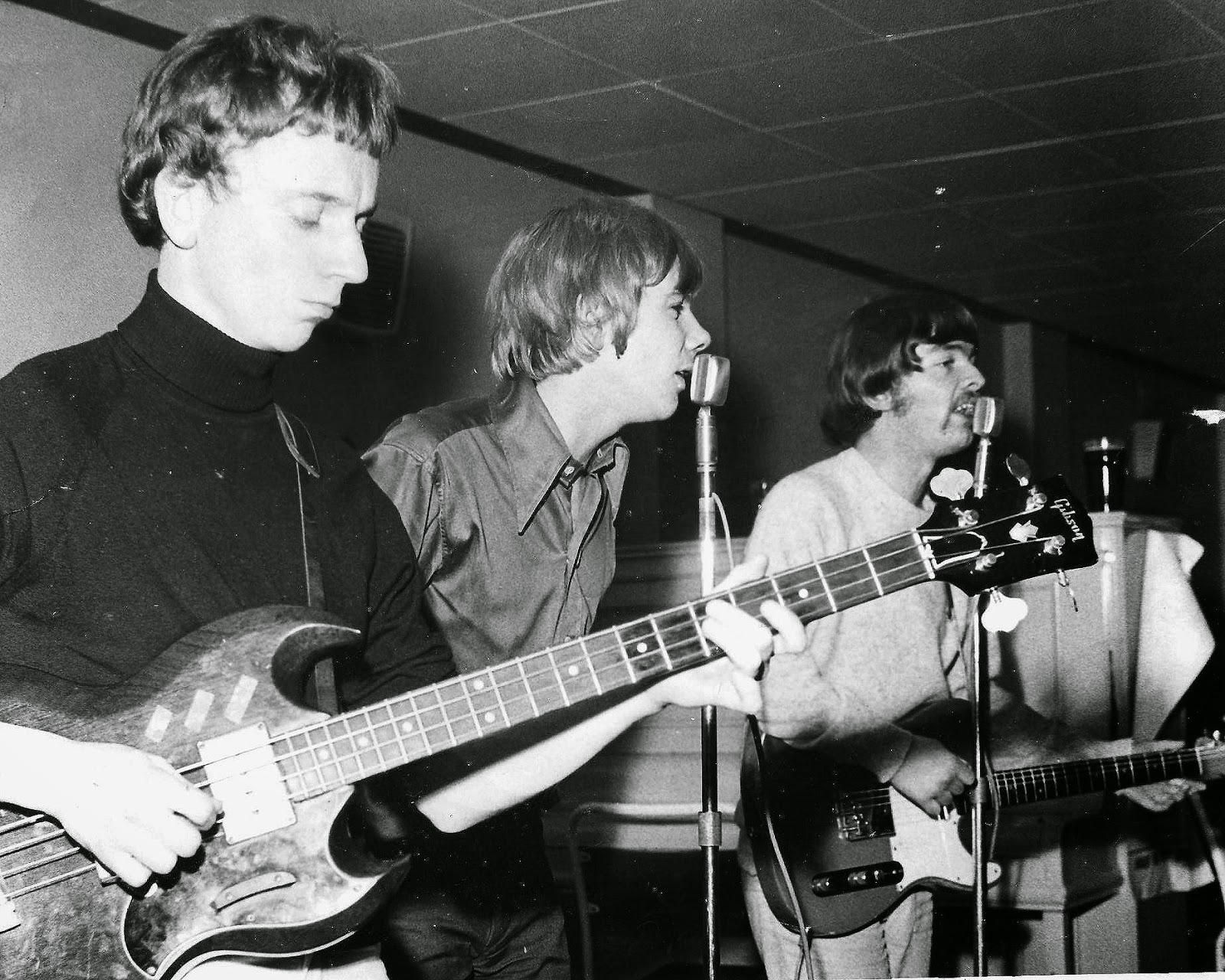
So Dave can you tell us briefly where you grew up and how you came to be involved in the 60s rock’n’roll beat scene?
I’ve been a guitar player since I was 15, and went straight to the Guildhall School of Music and studied classical guitar for a year then got bored, and wanted to play rock and roll. The folly of youth, I should have stuck at it. Then I followed a lot of bands, including Washington DCs, had a summer season in Scarborough, and a break! Made 2 albums with Mike Hugg ex-Manfred Mann, tv in Germany, and some gigs. Then went to London, and sessions with the great Tim Hardin, and all sorts of people! Had a single out on RCA and toured with Lulu. Also went to Japan with Barbara Dixon for the Tokyo song contest inbetween … Lots of local stuff, including Spell, and Mojo, just about going today! I ended up in Bedford and was driving to London every weekend and playing with No Spring Chicken in south London. I have moved to Suffolk now, and I’m still playing.
If the previous question doesn’t answer this … can you remember who the other guys were that played alongside you in Spell and what timeframe we are talking about here?
Spell… don’t ask me dates, I’m no good at it. From my season in Scarborough, I got followed home to Bedford by (lead singer) Chris Bagnall, who decided he was going to form a band with me. The bass player was local, Mike Rimmer, sadly dead now. A former guitarist, he turned his hand to bass very successfully. We did local gigs with a drummer, and I continued to write.
What were the circumstances that led up to Spell recording the tracks that Chris McGranaghan’s Those Old Records label is about to release?
The studio date was very natural for me, as I was a great friend of Derek Tompkins, a lovely person with a great studio in Wellingborough. He taught me lots of things, including how to build compressors! I got studio time to write, so Spell got a session!
What were the circumstances surrounding the fact that the recordings that you made with Spell never made it onto a commercially-released record at the time?
It was a local band with local attitudes, absolutely no business acumen. Consequently, it stayed local, until it died a natural death!
What about your memories of the actual session itself, can you recall much about the studio surroundings; equipment used, methods of recording undertaken etc … or is it all kinda lost in the mists of time?
Derek’s studio was good, relaxed, thanks to him. He had a stutter, which manifested itself on the talk back. Some patience was required. To get product in those days, it was reel to reel at 15 ips, which no one had a playback machine for, or acetates. Hence where we are now.
“I played piano with his band the Authentics at the Marquee supporting the Yardbirds.”
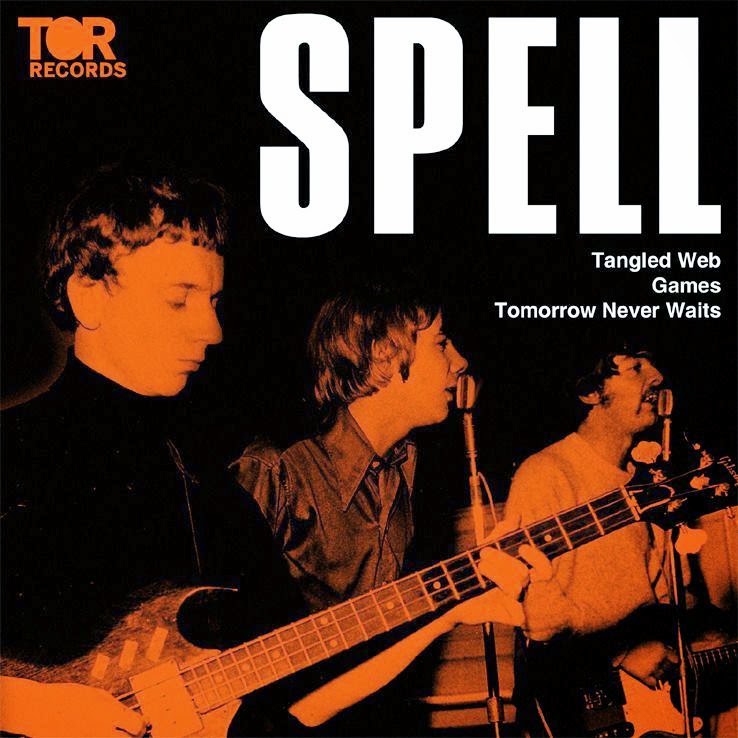
One of the tracks Spell recorded is a rather tasty interpretation of Love’s immortal classic ‘She Comes In Colors’, can you remember how this all came to be?
Chris always wanted to record ‘She Comes In Colours’. We also did it in the live set.
How did the association with John Williams come to be?
John Williams was a friend of mine from the age of 17! I played piano with his band the Authentics at the Marquee supporting the Yardbirds. John was a major influence on me and turned me on to Dylan, and many other people at the time. I have recorded with him many times since.
I think ‘Train’ is an absolutely terrific cut. Do you recall much about how the track came to be written and put together? For example was it already written before you decided to record, or did it evolve during the studio session itself?
With regard to ‘Train’ it’s all a bit hazy … I think John played bass on it, but neither of us can remember the drummer.
What can you tell us about the other track on the (John Williams credited) acetate, Chris told me it apparently has nothing to do with the group who recorded ‘Train’?
You will have to talk to John about the B side. I was not on it.
With so many years hindsight how do you feel now about the whole experience with both Spell and with John Williams?
All this stuff is part of your musical education as a guitarist. I am so happy to be working with John again. Watch this space!
My thanks to Dave King for taking the time to answer these questions, and for the great music.
– Lenny Helsing

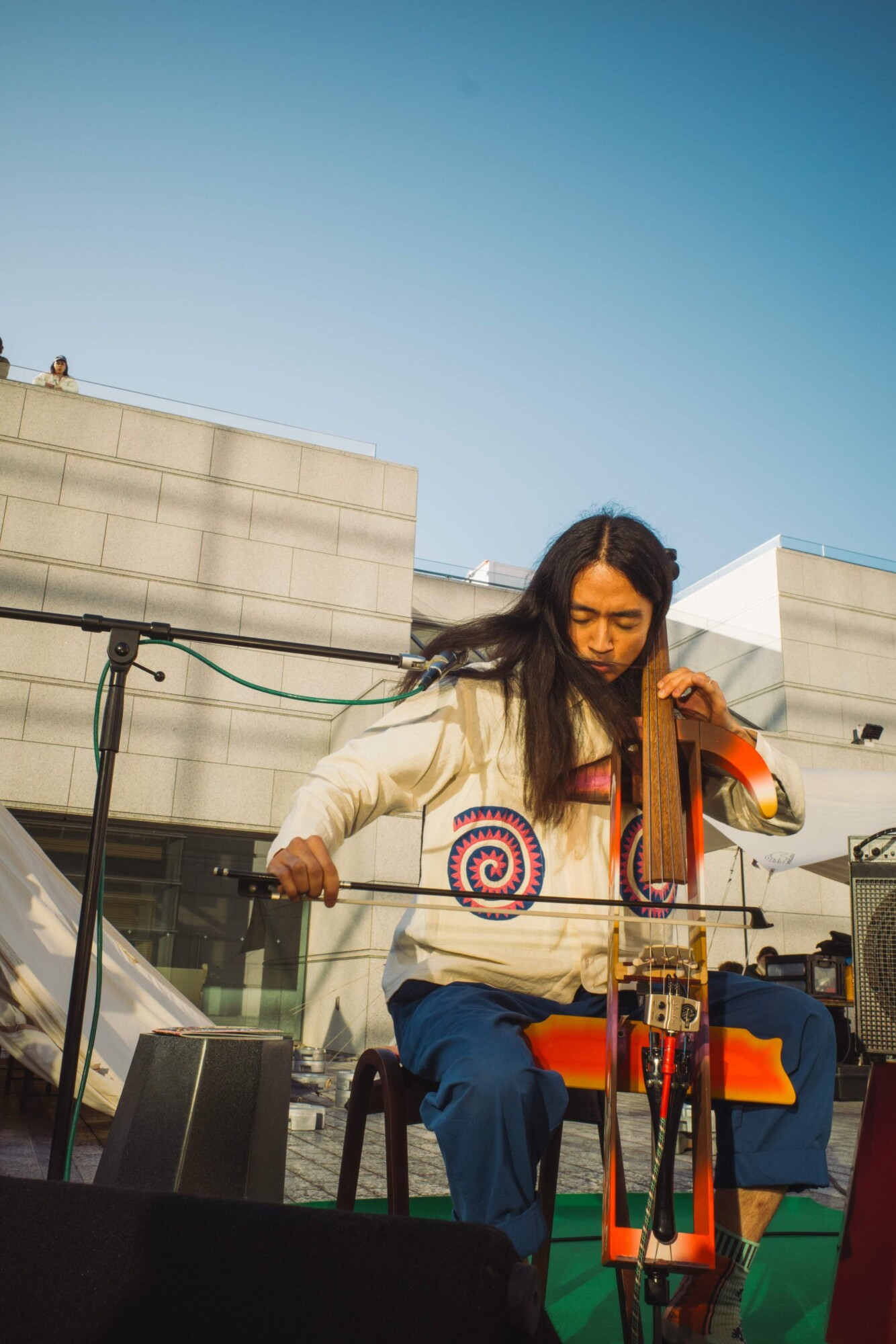
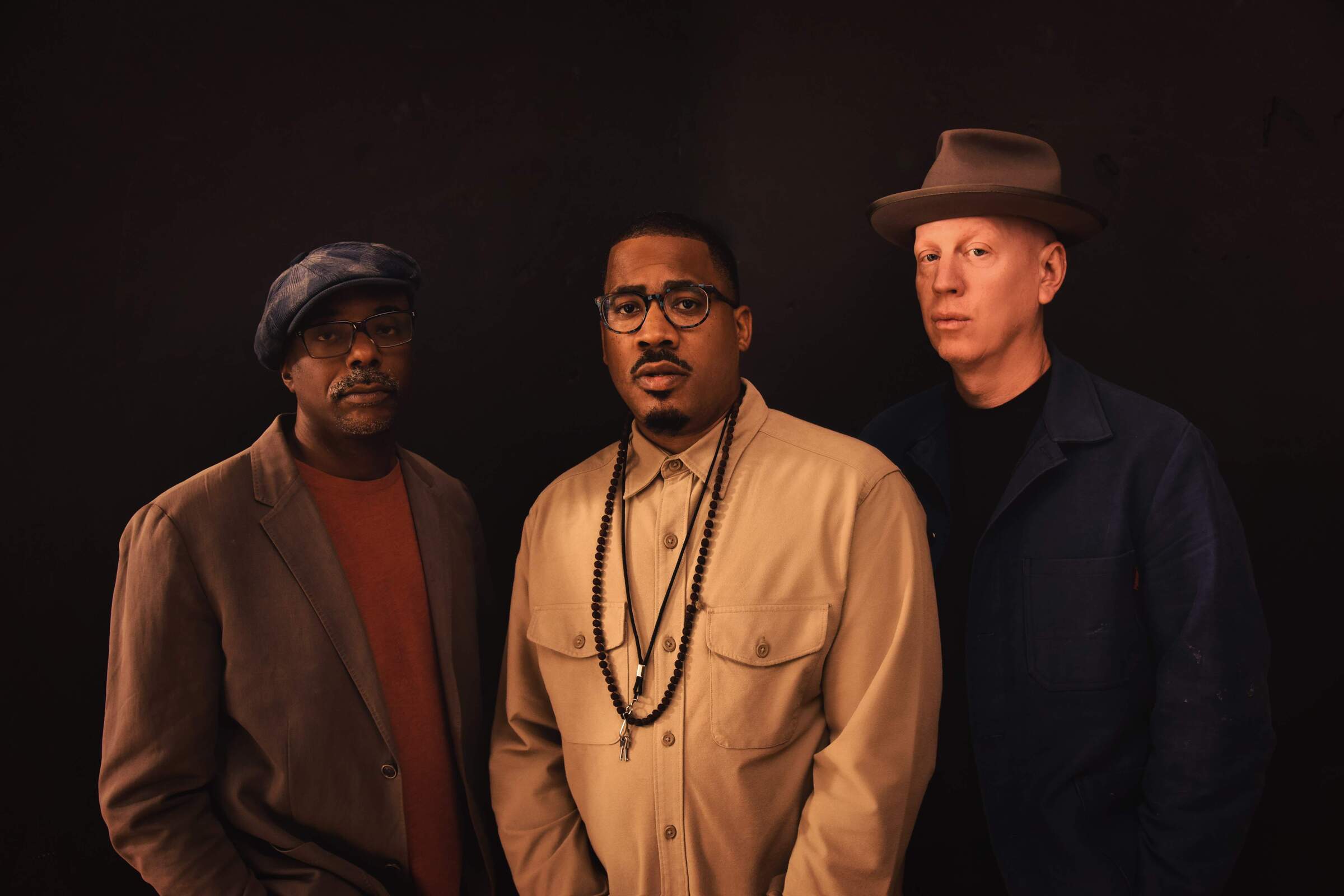
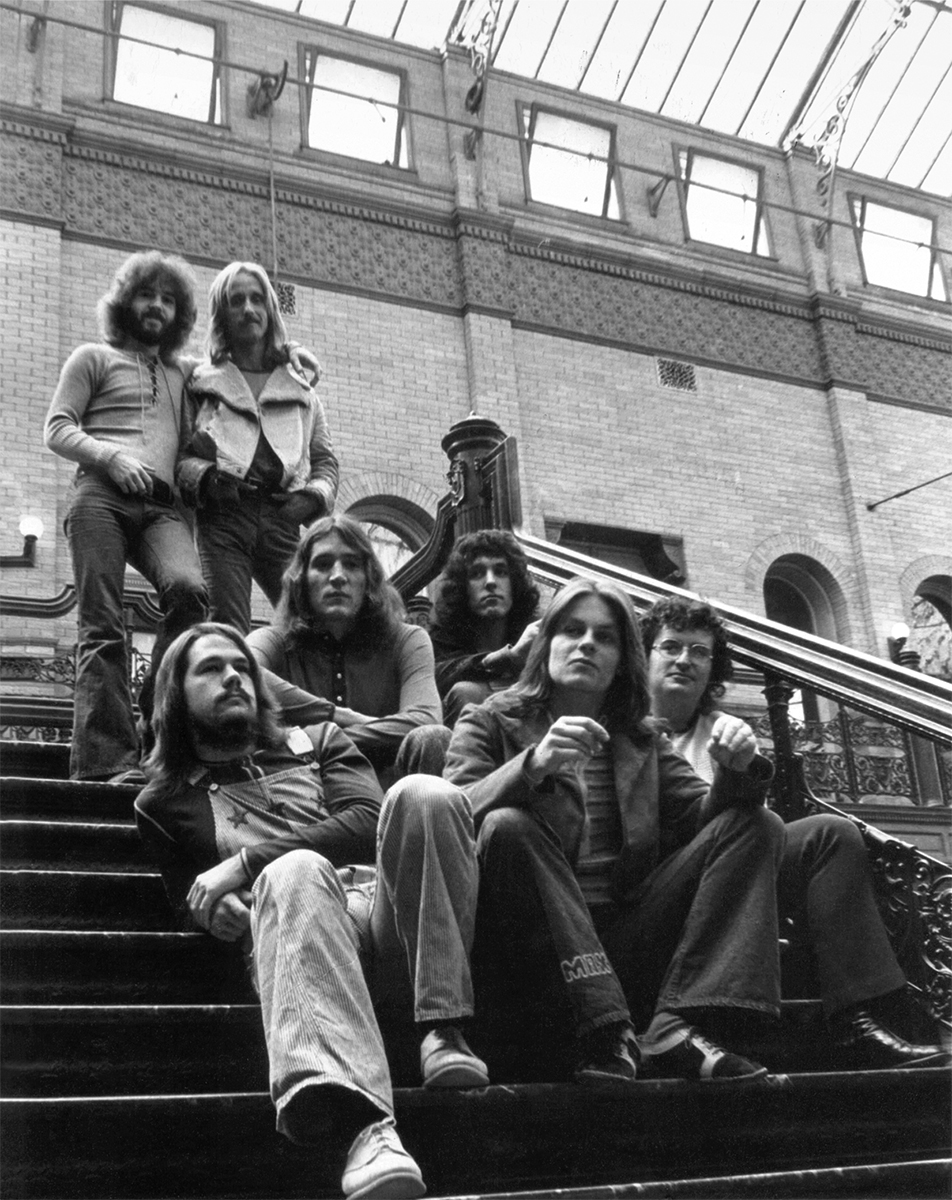
Remember watching/listening to DK at local Bedford gigs. What a player, great solid sound, and a down to earth guy to boot. Him and the Bonas brothers were definitely top-tier players on the local circuit. Oh, and a band called Ocean, with a phenomenal guitarist called Max Milligan. Jeezuz. They were great, and an inspiration to us up and coming players. Well, most, if not all, of us never went beyond local crap band level, but the dreams were there…sigh